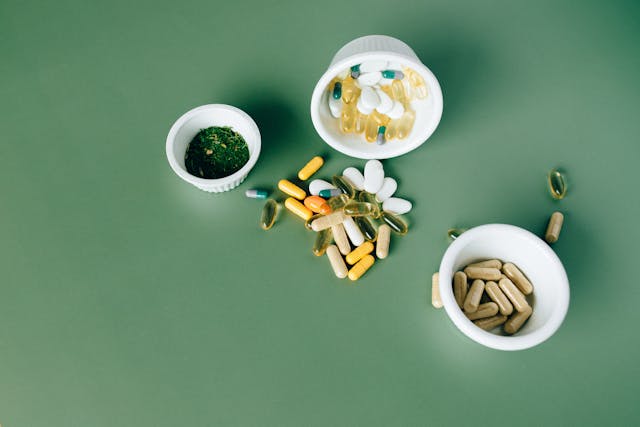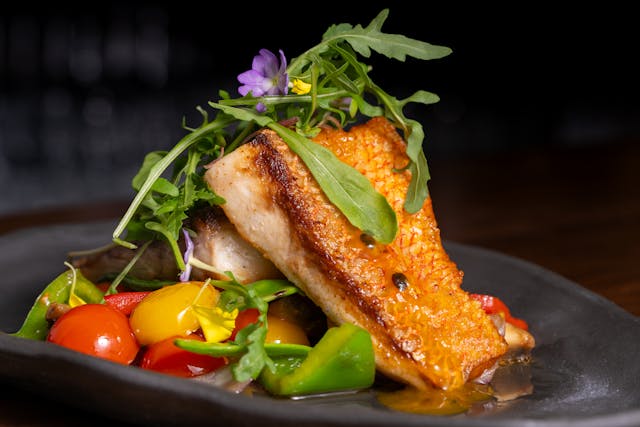At 45, Michael, a father of two, was shocked to learn about the increasing rates of colon cancer among younger adults. Determined to protect his health, he sought ways to reduce his risk. Through research, Michael discovered that incorporating certain foods into his diet could play a significant role in preventing colon cancer.
The Rising Concern of Colon Cancer
Colon cancer, also known as colorectal cancer, affects the large intestine and is a leading cause of cancer-related deaths worldwide. Alarmingly, its incidence among individuals under 50 has been on the rise. Factors such as diet, lifestyle, and gut health significantly influence the risk of developing this disease.
Yogurt: A Probiotic Powerhouse
Recent studies have highlighted the potential protective effects of yogurt against colon cancer. Yogurt is rich in probiotics—beneficial bacteria that promote a healthy gut microbiome. A study led by Massachusetts General Brigham found that individuals consuming two or more servings of yogurt per week had a significant reduction in certain types of colorectal cancer. This effect is attributed to probiotics enhancing gut health and inhibiting harmful bacteria growth.
Foods That May Help Prevent Colon Cancer
In addition to yogurt, several other foods have been associated with a reduced risk of colon cancer:
-
Fiber-Rich Foods: Diets high in fiber support digestive health and regular bowel movements, reducing the time potential carcinogens remain in the colon. Sources include fruits, vegetables, whole grains, and legumes.
-
Non-Starchy Vegetables: Vegetables such as broccoli, cabbage, and spinach are rich in vitamins, minerals, and antioxidants that may protect against cancer.
-
Whole Grains and Legumes: Foods like quinoa, oats, lentils, and beans are high in fiber and other nutrients that support colon health.
-
Fermented Foods: In addition to yogurt, foods like kefir, sauerkraut, and kimchi introduce beneficial bacteria to the gut, potentially lowering cancer risk.
-
Nuts and Seeds: Almonds, walnuts, flaxseeds, and chia seeds provide healthy fats and fiber, contributing to a reduced cancer risk.
Natural Compounds with Potential Anti-Cancer Properties
Certain natural compounds found in foods have shown promise in inhibiting cancer cell growth:
-
Butyrate: A short-chain fatty acid produced during the fermentation of dietary fiber in the colon. Butyrate has been shown to promote healthy colon cells and induce the death of cancerous cells.
-
Antioxidants: Compounds found in berries, nuts, and vegetables that protect cells from damage.
Understanding Stage 0 Colon Cancer
Stage 0 colon cancer, also known as carcinoma in situ, is the earliest form of the disease. At this stage, abnormal cells are confined to the innermost lining of the colon and have not invaded deeper tissues. Early detection and treatment at this stage often lead to excellent outcomes, underscoring the importance of regular screenings.
Practical Steps to Reduce Colon Cancer Risk
-
Incorporate Probiotic-Rich Foods: Add yogurt, kefir, and fermented vegetables to your diet to support a healthy gut microbiome.
-
Increase Fiber Intake: Aim for at least 25-30 grams of fiber daily from a variety of plant-based sources.
-
Limit Red and Processed Meats: Reducing consumption of these foods can lower cancer risk.
-
Stay Physically Active: Regular exercise supports overall health and aids in maintaining a healthy weight.
-
Regular Screenings: Early detection through screenings like colonoscopies is crucial for prevention and successful treatment.
Conclusion
Michael’s proactive approach to his diet reflects a broader understanding of how nutrition influences colon health. By incorporating yogurt and other beneficial foods into your routine, you can take meaningful steps toward reducing your risk of colon cancer. Remember, a balanced diet, active lifestyle, and regular medical check-ups are key components of cancer prevention.
Engage with Us
Have you made dietary changes to support your colon health? Share your experiences and tips in the comments below.


Pingback: Understanding Colon Cancer: Symptoms, Stages, and Survival Rates - Wellness Readers Digest